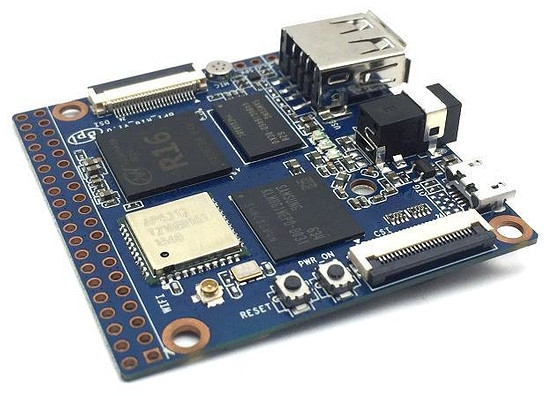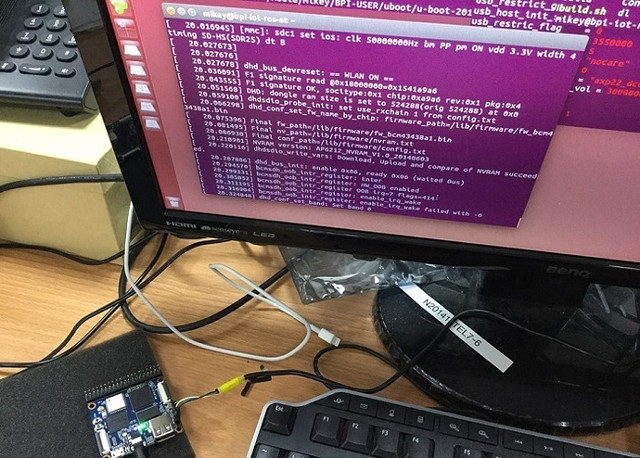Allwinner R16 is a quad core Cortex A7 processor found in Nintendo NES Classic Mini game console, but so far there was no development board based on the processor apart from Allwinner Parrot board that does not appear to be for sale. But Banana Pi has designed their own R16 development board, and released some information about BPI-M2 Magic board.
 Banana Pi BPI-M2 Magic specifications:
Banana Pi BPI-M2 Magic specifications:
- SoC – Allwinner R16 quad core ARM Cortex-A7 processor with ARM Mali 400 MP2 GPU
- System Memory – 512MB DDR3
- Storage – 8 GB eMMC flash (option: 16, 32 or 64GB) + micro SD slot
- Display Interface – 4-lane MIPI DSI connector
- Camera Interface – CSI connector supporting up to 5MP sensor, 1080p30 H.265 video capture
- Video Decoder – Multi-format FHD video decoding, including Mpeg1/2, Mpeg4, H.263, H.264, etc H.264 high profile 1080p@60fps
- Audio – On-board microphone
- Connectivity – Wifi 802.11 b/g/n, Bluetooth 4.0 LE (AP6212)
- USB – 1x USB 2.0 host, 1x micro USB 2.0 OTG port
- Expansion – 40-pin header with GPIOs, UART, I2C, SPI, PWM…
- Misc – Reset & power buttons, RGB LEDs,
- Power Supply
- 5V @ 2A via DC power barrel
- 3.7V Lithium battery support
- Dimensions – 51 x 51 mm
- Weight – 40 grams
Allwinner R16 is apparently pin-to-pin compatible with Allwinner A33, as the company also offers the board with the latter. Note that there’s no HDMI port, so it will only be useful for headless application, or if you connect it to an LCD display via the MIPI DSI interface. The board will run Tina IoT Linux, a lightweight Linux distributions optimized for Allwinner R-Series processor.

You’ll find some extra info on the Wiki, but as of writing, most pages are currently blank or links not setup. SinoVoIP has not announced pricing and availability yet either. [Update October 30, 2017: The board is now for sale for $28 + shipping]

Jean-Luc started CNX Software in 2010 as a part-time endeavor, before quitting his job as a software engineering manager, and starting to write daily news, and reviews full time later in 2011.
Support CNX Software! Donate via cryptocurrencies, become a Patron on Patreon, or purchase goods on Amazon or Aliexpress




